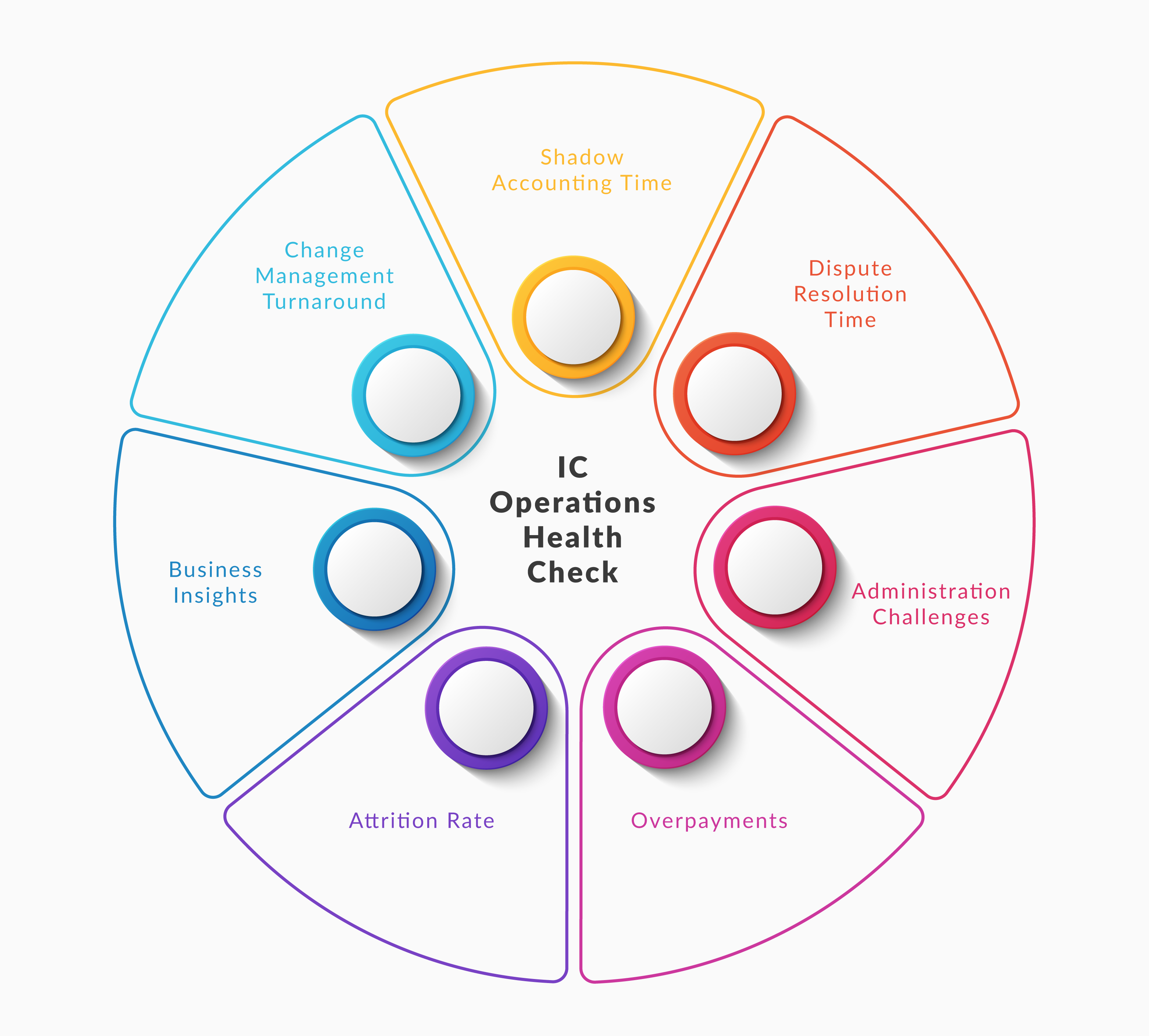How to assess health of incentive plan operations?
by Amit Jain
- Sep 25, 2014
- 5 min read

Companies generally perform a periodic assessment of their sales incentive plans to ensure that they meet the desired business objectives and are perceived to be fair by the salesforce. This assessment should combine qualitative feedback from the sales force and leadership along with quantitative analyses of historical incentive payout performance. However, there are additional aspects of the incentive compensation process which need a detailed review to ensure the success of the incentive compensation program.
One of the aspects that need to be reviewed is the incentive compensation plan operational strategy. While finalizing the approach for incentive compensation plan roll-out for a new year, certain important questions regarding this aspect need to be answered so as to maximize ROI from the entire change management process.

Shadow Accounting Time
- On average, what % of the time is your salesforce spending on shadow accounting? Answering this question is critical because this impacts the productivity of the salesperson and directly affects top-line revenue. Shadow accounting also undermines the existing incentive compensation management process and usually is associated with lower salesperson engagement levels.
Dispute Resolution Time
- What % of the time is your salesforce spending on dispute resolution? Similar to shadow accounting time, this results in an overall loss of productivity and affects salesperson morale. An increase in dispute volumes and resolution time causes an exponential decrease in the engagement level of the salesperson. In an organization, higher dispute volume directly decreases net selling time and also results in sales leadership spending more time on tactical issues rather than strategic initiatives, which can help salesperson efficiency and hence top-line revenue.
- What % of the time is being spent by your operations group on dispute resolution? This time is generally spent by sales analysts on juggling through output tables, manually calculating results and entering manual adjustments. As a result, output validation is affected, which in turn causes more disputes. Dispute resolution time also takes away from business intelligence analysis which identifies actionable insights for a better future. Does the senior leadership from the sales operations group get involved in more tactical governance issues? This is symptomatic of this issue, and it takes time away from new initiatives that would improve organizational efficiency.
Overpayments
- On average, how many financial losses accumulate due to incentive overpayments? These overpayments generally go unreported by the beneficiary salesperson but still create an environment of distrust. Sometimes organizations tend to ignore known overpayments because of the complexity of recalculation or closed payment periods and retrospective reconciliations.
Administration Challenges
- How much time does your operations group spend on calculating and processing manual adjustments? These adjustment calculations may arise from disputes from the salesforce or due to existing system limitations for plan exception processing. HR exceptions (transfers, new hires, performance improvement plans, LOA, etc.) are usually the primary offender here. This reduces the overall output of the operations group and exposes the organization to compliance risk due to the highly manual nature of this process.
- What is the average delay between the desired payroll date and the actual payroll date? This impacts the overall motivation of the salesforce and results in undermining the credibility of the existing IC calculation engine. Such delays may also expose your organization to legal issues in some states where pay frequencies are mandated by governments.
- How much processing time on average, is lost due to late identification of input data issues? This causes delays in incentive payments and results in loss of productivity of the operations group by taking valuable time out of end result analysis.
Change Management Turnaround
- How much time, on average, does it take to implement and roll out any plan changes? This can be measured by calculating the gap between plan design finalization and final system implementation and roll-out. The opportunity cost of this gap must be considered since you’re technically running a non-optimum system during the implementation and roll-out.
Attrition Rate
- What is the impact of the existing IC governance model on your attrition rate? Attrition increases due to delayed or incorrect payments, frustration from the dispute resolution process and unclear and infrequent reporting. This piles on additional administrative costs such as legal, recruitment, training, sales leadership interview time and results in loss of potential revenue due to vacancy and required ramp-up time for new hires.
Business Insights
- Are business insights available in a timely manner? Lack of timely actionable insights causes delay in strategic decisions. Early and frequent analysis of the performance data can help the analyst in identifying subtle motivational issues with the existing plan and supports the sales leadership in course correction. Such timely changes can drive the overall alignment of salesforce behavior with strategic corporate business objectives.
IC plan operations is generally considered more tactical and is not given the importance it deserves. Some of these elements may look trivial but play a significant role in the overall impact of the program and its ability to meet desired business objectives. As you may have seen, answers to some of these questions not only help in better alignment but can also help in improving the engagement of the sales force. Improvements on these fronts can result in reduced operating expenses and increased net selling time which boosts top-line revenue.



- Sep 11, 2020
- 4 min read
by Amit Jain

- Sep 09, 2020
- 4 min read
by Sujeet Pillai

- Nov 07, 2022
- 4 min read
by Sujeet Pillai
What our Clients are saying






